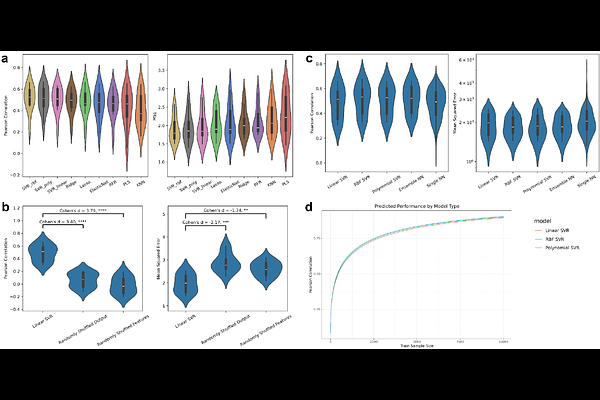Joint linear modeling of transcriptomics and proteomics is predictive of cancer metastasis

Joint linear modeling of transcriptomics and proteomics is predictive of cancer metastasis
Sharma, R.; Meimetis, N.; Begzati, A.; Nagar, S. D.; Kellman, B.; Baghdassarian, H. M.
AbstractCancer metastasis, a process in which cancer cells migrate to secondary sites, accounts for 90% of cancer deaths. While machine learning has been used to predict metastasis in a variety of ways, they tend to be specific to tumor types or classification tasks. Here, we provide a pan-cancer machine learning model that is easily interpretable and directly links the transcriptomic and proteomic profiles of hundreds of cancer cell lines from DepMap with metastasis in a tissue-agnostic manner. We show that, for the relatively small sample size here, linear models perform just as well as non-linear models, including neural networks. We also demonstrate that transcriptomics outperforms proteomics for predictive tasks. However, the combination of both transcriptomics and proteomics leads to an overall increase in performance, indicating that these modalities can complement each other. Finally, we demonstrate that those features identified as most important by the joint omics linear model fit are over-represented in biological pathways related to metastasis, suggesting that the model learns relevant information that may be useful in identifying universal biomarkers or therapeutic targets of cancer metastasis.